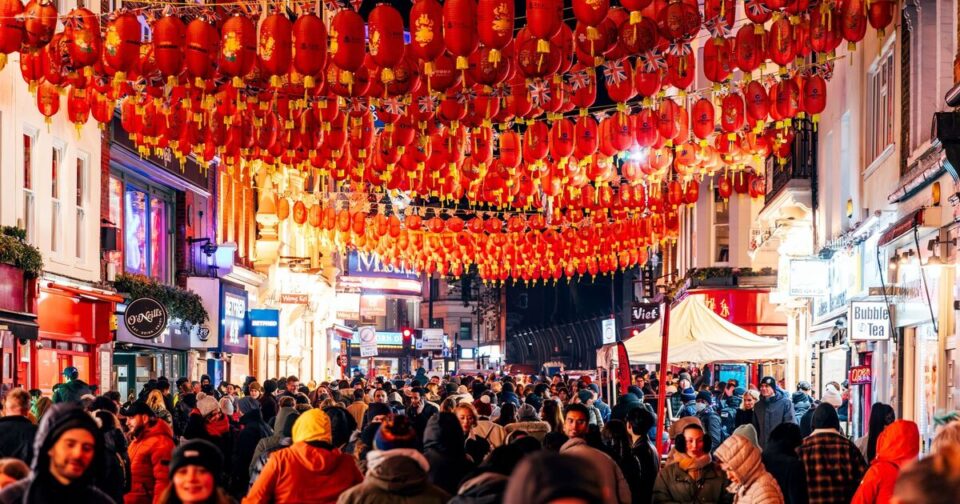Chinese new year, also known as Lunar new year, falls on Wednesday, January 29 2025.
The event is widely celebrated across Asia and neighbouring countries, though London hosts the largest celebrations outside China.
Chinatown is among the most poignant zones in the city for such celebrations, drawing thousands of visitors to Gerrard Street and its neighbouring roads to enjoy the festivities.
Folk stories, traditions, food, drink, and costumes are some ways to mark the arrival of the Year of the Snake. This zodiac sign symbolises wisdom, intuition, and transformation and represents elegance and thoughtfulness.
Tenants and residents of London’s Chinatown have shared their “golden rules” to ensure good luck and prosperity for the new Lunar year ahead, including one fruit deemed a lucky charm.
Cleaning the house
Thoroughly cleansing the house in preparation for Chinese new year isn’t just for making it nice. Chinese families will carefully scrub their homes from top to bottom to sweep away the bad luck from the previous year.
Kenny Yeung of Orient London commented: “I was born and raised in London but I grew up in a very traditional family. For us, Chinese New Year usually starts two to three days before. First thing is cleaning the house – every corner, every bit of dust. And we decorate our house, putting red things all over the place”.
Red lanterns and envelopes
The colour red is one you’ll find red everywhere in China at New Year. Pretty paper lanterns, banners, clothing and the iconic red envelopes bear significance. According to Chinatown residents, gifting red envelopes to younger family members is a key Chinese new year custom.
Often, the envelopes contain money and are slept on for a patience-testing seven nights after the festival to symbolise good luck and fortune.
Lanterns are most significant on the 15th and final day of Chinese New Year, during the Lantern Festival, when families hang them in their houses and children carry them to the temple.
Buying oranges
The Chinese word for tangerine sounds like “luck,” and the word for orange sounds like “wealth,” so the fruits are prized for table display and gift-giving during Chinese new year.
Feasting with your family
Family members will travel worldwide to return home to China to be around the dinner table with their relatives for the Chinese new year. Geoff Leong of Dumplings’ Legend, Chinatown, said: “All of us get together each year to have an amazing family feast celebrating Chinese New Year”.
Ellen Chew of Rasa Sayang restaurant revealed: “Chinese New Year is the most important time for me, personally, and I believe for most Chinese throughout the world. It’s a period when I get to bond with my family and extended families. It’s also a time for me to revisit cultural traditions and customs that keep me closer to my Singaporean roots”.
There are plenty of things deemed lucky during the Chinese New Year, but the same goes for things viewed as unlucky. In Chinese culture, it is taboo for a person to brew herbal medicine or take medicine on the first day of the lunar year; otherwise, it is believed he or she will get ill for a whole year.
Hair must also not be washed nor cut on Chinese new year’s Day, January 30, as they are both seen to bring misfortune.
The annual Chinese new year parade will occur on Sunday, February 2, from East Trafalgar Square to Chinatown. Ahead of the parade, there are expected lion dance performances throughout Chinatown on Saturday, February 1.
